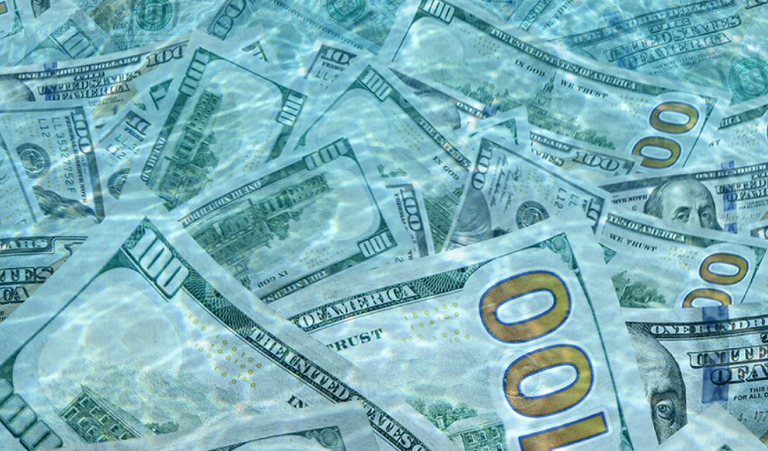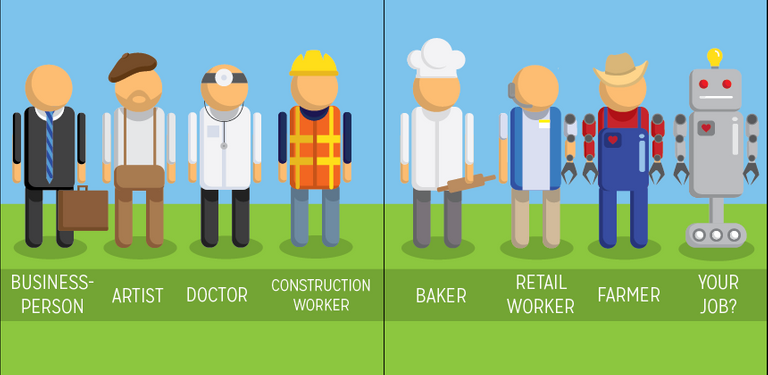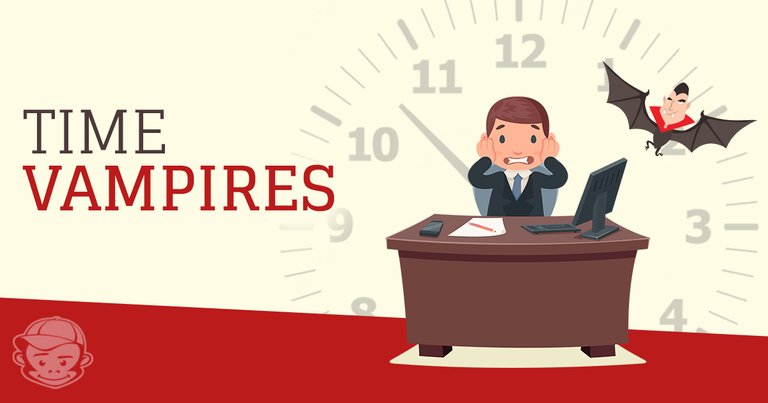All Money Pools

That's just the way it is.
There's a popular saying out there that Taskmaster likes to throw around that goes, "Fixed money pools!" He says this in reference to Bitcoin, and within this context it makes perfect sense and illustrates the point being made quite well. Bitcoin is deflationary. Deflation is not a good strategy in the long term for building a robust economy, and is accompanied by massive diminishing returns, centralized infrastructure, and a huge gap between the rich and the poor.
However, as my title implies, I'd like to point out that ALL MONEY POOLS. All wealth is constantly consolidated and centralized by those clever enough or powerful enough to seize and hold it. This is just basic human psychology. People are greedy. We can never have too much money; it's just a number on a screen that could always be bigger; a scoreboard with no upper limit.
I mean... just look at Hive...
Hive doesn't have fixed money. In fact we are still giving an insane APR on HBD of at least 15% for the foreseeable future. That's on par with stock market investments. Speaking of stocks, that is also not fixed money and it pools just as badly as anything else. USD is not fixed money and it pools. Hive is supposed to be decentralized and the stake is pooled. It's not something we can get away from that easily.
A completely fair economy will still result in pooled money.
Humans have been trained from birth to have zero savings, live paycheck to paycheck, and demand instant gratification. I can't speak to every culture and country, but I can speak to USA and a few other developed nations. Even in the land of the free and the home of the brave, where it is possible to save up, it is discouraged by those who would profit the most from it. Seeing as those who would profit the most from this type of behavior tend to be the richest and most powerful members of society: this creates a big problem and major conflict of interest within the economy.

Does this problem actually matter?
Money pooling is not an issue so much as citizens living under the poverty line. If everyone on Earth could afford housing, food, water, electricity, healthcare, etc, and still have plenty leftover to spare, it wouldn't matter if there were trillionaires or even quadrillionaires running around. However, because there is a poverty problem, it's easy to pin the source of this problem on the richest among us. After all, they are plundering the world and paying employees by the hour rather than how much value is actually generated from their labor. How could it not be their fault?
Unfortunately this is not completely sound logic. There are plenty of people out there making six figure salaries who don't save a dime of their income and even carry credit card debt, car payments, and house mortgages. Again, the culture we live in dictates these chosen behaviors, not the ultra wealthy. We can't just fix this problem by paying people more. That's absurd and already known to be a failed path.

It's also not the fault of the wealthy and powerful that the average person is losing value within society. Computers, the Internet, and automation have outsourced a lot of wealth from the middle class to big business owners. Capitalism dictates that if a company can pay $20/h for a robot to do a job perfectly then they aren't going to pay a human $30/h for imperfect work. That's quite simply just not how the world or even basic logic works. Demanding increases to the minimum wage creates a huge threat that can trend toward eliminating those jobs entirely in favor of automation, but that's another subject entirely.
Spread the Wealth?
The entire point of crypto, decentralization, and disintermediation is to spread out power and wealth in a more fair way that will create a healthy circular economy. It's been known for centuries that a strong middle class is the key to a strong economy, and yet the middle class dwindles every year as liquidity gets sucked up like a straw to the top 1%.
A strong middle class is required because on a very real level the economy itself is born of decentralization and peer to peer transactions. For example: a very wealthy person might be able to afford getting a haircut every day, but nobody would actually ever do that because it's a waste of time and money. The only way the barber shop can stay in business is if a lot of unique individuals require that service every once and a while.
The same goes for most businesses. Netflix could not survive if only the wealthy could afford their services. Restaurants can't turn a profit unless they can serve a certain level of volume. If the vast majority of the local population is poor and can only afford the bare necessities, then a lot of these businesses will go bankrupt within a very short period of time.
Velocity of money
A strong middle class creates exponential levels of velocity. In terms of currency, velocity is when money exchanges hands often, and is a metric that helps money to not be horded and pooled. This is one big advantage fiat has as a medium of exchange.
Because the value of fiat is fated to go down over time this incentivizes market participants to trade this type of debt around quickly in a game of economic Hot Potato. Fiat is the motor oil of the economy. It also helps that in many cases spending fiat does not incur a tax event for the spender (or a relatively small sales tax), further reducing economic friction and incentivizing velocity.

Producer vs Consumer
In a perfect capitalistic society every citizen is both a producer and a consumer. Back in olden days you might have been a blacksmith, a cobbler, or a farmer. The farmer trades his chickens for money. The blacksmith trades his steel for money, the cobbler trades his shoes for money. Then that money gets recycled back into the economy for whatever that person needs to the other professions.
This was also during a time in which income tax did not exist, further reducing economic friction. In fact many would be surprised to learn that federal income tax did not exist until 1909 in America, and back then it was only a few percent and people were still pissed about it.
The point being that this day in age we have a warped and completely messed up form of capitalism in which almost nobody is a producer, and instead we are all consumers who agree to trade our time for money to the time vampires, aka employers who own the means of production. The reason for this is that creating end-products that consumers actually want these days has become way too complicated for a single person to create.
No one person can create a ball-point pen, let alone a car or cell phone. Thus the paradigm shifted to a centralized model where only wealthy investors have the capital to take risks in exchange for ultimate ownership of the finished product line. Everyone else takes zero risk and just trades their time for money on a fixed schedule.

Hive would ironically pool less if it was worth more.
While Bitcoin is doing quite well, many other tokens are still in the distressed sellers phase. If someone from Nigeria could come here and earn even $5/h that would be a pretty awesome wage and they could save their stake for the future. Instead what we have is a struggling community just trying to get by in any way possible.
Again, a lot of this has to do with the value of our actual employees; in this case our employees being the users of the network. How much value are we actually creating here? Clearly not enough to sustain the network and maintain a positive feedback loop. The solution to these problems will always lead to the idea that we need better jobs and ways for the users to build value.
But of course actually turning that theory into a reality tends to be a quite difficult task. The vast majority of value in crypto is created by either devs or outside investors, and most people are neither devs nor fabulously wealthy in the first place. In fact the entire point of coming to crypto was to become fabulously wealthy after the fact. What came first, the chicken or the egg?
Conclusion
All money pools, which is bad for any and every economy. The best thing for an economy is a strong middle class, which means good jobs on a large scale for a lot of people all at once. This is the crux of all economic activity: leveraging the power of the individual into maximum value. Technology is the problem, and crypto is trying to be the technology that solves it.
How could changing how money works change people's wealthiness when big producers hold all the production causing all work and purchase power go through them? If you manage to save anything, they will make you starve until you don't have any of it left anymore.
Because at this point money itself is a technology and a product. Corporations don't want people to be poor; they actually want the opposite so that they can extract more money out of them. The idea behind crypto doesn't extend to just money. We are eventually supposed to decentralize all the means of production. Which is obviously a very tall order that could take decades.
On top of all this most products and services are completely optional.
No one's forcing us to go to an expensive restaurant or buy a new phone every year.
This computer is from 2016 and it still works awesome.
It's getting even worse the paycheck to paycheck thing. The absolute will power and determination it takes to get out of the endless cycle is staggering. Crypto was supposed to change that and now it looks like it is going to continue to be monopolized by the upper echelons. Minus a handful of people who were able to get in early I guess.
Yeah but like, 6 fig salaries are basically functionally middle-class right now (at least the first hundred - 200k is). Folks in the 200K+ range probably are doing okay but like, for the folks making just barely 6 figures it's more comfortable but definitely not comparable to rich folks... let alone the ultra-wealthy.
Millionaires are fine, honestly, but when you get to billionaires or the ludicrous folks that have 100s of billions - that's gross wealth hoarding and the vast majority of them have not put in a proportionally larger amount of work or ingenuity compared to the people they're profiting off of.
It's difficult for me to personally empathize with people who make six figures when I've been spending $15k or less a year for over 2 decades. Don't ask me how I do it; I don't even know. Scrappy as hell.
And of course you can make that argument all you want: that $100k is middle class, but does that mean you're implying that the middle class isn't supposed to save any money? Because ultimately the point is to showcase that the culture pushes everyone to live beyond their means no matter what their situation is. Just shift 6-figures to 7-figures and nothing changes. Everyone acts the same.
Also it needs to be pointed out that nobody has hundreds of billions of dollars. Elon Musk, Bill Gates, Mark Zuckerberg, and Jeff Bezos do not have DOLLARS. They have companies and they own billions of dollars worth of STOCK, which is not the same as dollars whatsoever. Is it really wealth hording to build a business and want to hold a controlling share of your own business? How is that hoarding? That stock was printed out of thin air. The total market cap is a largely meaningless number. Even if they paid their employees more that doesn't guarantee their stock price would go down. Are they supposed to dump stock to pay employees more? None of the stakeholders would allow that. So what are they supposed to do?
What would we say if someone on Hive was a billionaire? Would we say that guy is a greedy asshole and they should dump their bag on the market making everyone on the network instantly poor? Kinda the same logic as above.
Oh no, they are. I think middle-class is the start of being able to save money (and put stuff away for retirement). Which is what everyone should be able to do but society screws everyone over and so, so many folks never get a chance to actually consider savings/retirements/etc.
That's a good point, though I think if we extended it to what folks are saying about billionaires IRL it wouldn't be so much 'dump their bags' as 'donate a reasonable percentage to the DHF and other delegations'.
Almost everyone pays effectively more tax (percentage-based) than billionaires do and THAT is the bigger problem. There should be (and to a degree is, within HIVE at least) an expectation that whales support those below them. It's not perfect here, but its arguably way better than in the US or Canada.
Right but there's a very real argument awkwardly lingering that states we should leave the billionaires alone unabated so they can continue acquiring wealth and making everyone else rich through the increasing spot price of the underlying asset, be it a stock or crypto token. A crypto token is obviously much better because a stock can be printed out of thin air and crypto can't.
The existence of a billionaire on Hive means the spot price has gone at least x100. Probably more like x1000.
I do love the way the ultra-wealthy like to pretend that trickle-down economics works and hasn't been disproven again and again. Always fun. 🤣
Saving up now is just like a big deal here in my country. The government policy, tax and bills to pay are the major things affecting us and that’s why we can’t even save up
It’s bad that there are some set of people benefiting from the fact that we can’t save up
It hurts
Did you say at one time you are a full time blogger? That, then, makes you both a producer and a consumer. When we can use hive to live everyone can do this.
"Art" and "creativity" are one of the few activities left that actually can be accomplished by a single person. Everyone on Hive can't be a blogger, blogging is a very niche and difficult activity. Hive needs a lot more jobs (or just less subjective ones) in order to achieve sustainability and growth.
Why do you say everyone can’t be a blogger? and it’s a difficult activity. My view of blogging must be different to yours.
Pretty sad reality. This platform could be so much more
The value of other tokens increases with the price of Bitcoin, but not all tokens increase in value.
You're absolutely right! Human psychology plays a significant role in wealth accumulation and consolidation. Greed can drive people to constantly seek more money, leading to the centralization of wealth. This takes a toll on the economy and the society as a whole. Money can have a powerful influence, but it's also essential to remember that there are many other valuable aspects of life beyond just the numbers. You've made an insightful observation about the culture of instant gratification and the challenges of saving money. It's unfortunate that many people have no choice but to live paycheck to paycheck, which can make it difficult to build a financial safety net. The influence of those who benefit from this behavior creates a conflict of interest within the economy.
Spoiler alert: this reads like it was written by AI.
Or it's just an extremely thorough summary.
Either way I don't need a yes-man telling me what I just wrote.
I know what I wrote. I wrote it.
This isn’t a yes or no talk, it’s what the whole world is experiencing, so if you wouldn’t like people’s opinions you don’t have to put it out. Let’s continue discussing the world and the experiences.
What does this captcha say?
😂
For me the biggest problem is consumerism, consuming more than we need has become very easy, in the past they spoke of "there is no poverty that can withstand 12 hours of work" but in the past, those who worked 12 hours did not pay for Netflix, Amazon Prime, cable TV, internet, cell phone rental, when I got home locked up after that day I didn't buy food by delivery, they didn't buy brand names when they were looking to get dressed, they fed when they were hungry and not by desires driven by "delicious" dishes in social networks.
That is why 50 years ago 12 hours of work (even if they were not well paid) took people out of poverty and put them in the middle class, human beings always look for the greatest reward with minimal effort, currently many content creators already Whether dancing, making jokes, or even talking about money, they can earn much more than a farmer, they earn more than the people who clean our streets, they earn more than police officers, they earn more than the people who sew our clothes, etc., that makes us Many people want to migrate to activities (less productive but with more profit), that always leads to greater consumption than we need, which again for me is the big problem.
The rich benefit from consumerism, of course, Netflix and Disney benefit from the fact that people are so stupid to subscribe to them and barely have time to watch a series or movie, now are the rich bad for that? Of course not, it is one of the stupid consumer decisions of the majority of people, it is the same as if in a town a large part of the people are fat, would the town's cardiologist doctors benefit? Of course, yes, plenty of patients, they may even have to raise the consultation price because they can't afford it, but the fact that everyone is fat is not their fault, it is people's decisions at the consumption level.
Greetings
For the most part I agree with what you've said here but also 50 years ago a person had exponentially more value within the economy because technology didn't exist that could do their job. I already went over that in detail in the OP so I'll leave it at that.
It might logically seem like a farmer or a blacksmith provides more value to society than a youtube streamer, but that's simply not the case. The blacksmith profession doesn't even really exist anymore because of factory production. It doesn't exist because it has very little value within the current environment. So you might not like it but these entertainment jobs are gaining value within the attention economy, while creating actual products and providing needed services will continue to be valued less and less and trend towards a state of decline.
At the end of the day automation combined with increasing population ensures that there are always going to be a lot more people than their are jobs. All the new jobs will be linked to the entertainment industry as we fully automate the base layer of the economy.
As you mentioned, technology has currently managed to replace many jobs, but at the same time it has created new ones, it also increases productivity, a gardener without technology using scissors, how long does it take to make a garden and maintain a garden?, a gardener with technology can make a garden much faster, a person who performs roof maintenance now if they use technology on their equipment should have someone who operates a drone as it saves them a lot of time in the inspection, although I am certainly with you that later Technology will eliminate more jobs than it creates and if we have a consumerist mentality and continue giving consumer value to entertainment we will reach what the movie Wall E shows us in the spaceship, a point where technology is already such that it can produce all the products and services we need without our intervention and we focus on consuming content.
Just as you told me, people are giving more economic value to entertainment (consuming it uncontrollably) apart from that we should not deceive ourselves, entertainment is only profitable because it has product sales in the middle of that entertainment (advertising) our attention in the media entertainment is valuable because it generates money in sales, that's why I don't think that technology is the problem, the problem is the society that insists on being consumerist, how is it possible that a person at the end of the month does not have money and while they consume " entertainment content " sale You won $5 off your next hamburger purchase at burgerking and boom you use your credit card because you don't have the money to consume something you don't need, all of this driven by consuming entertainment content, there's the problem.
Well that's my way of seeing hehehe, greetings